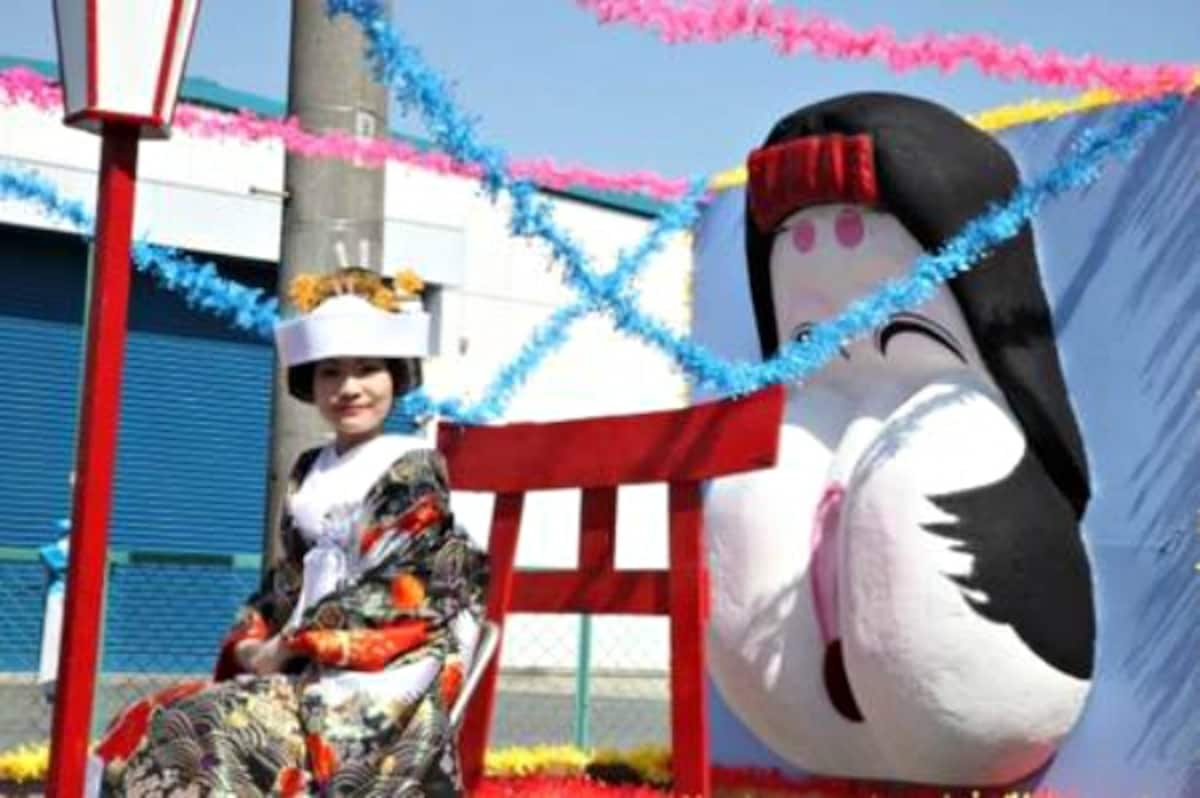Japan's Fertility Festivals: The Hard Facts
Around the world, people of different backgrounds celebrate the new harvest or New Year with fertility festivals. While many are family friendly and uplifting, Japan has a few that are a little more on the adult side. We present to you a few of those mature matsuri (festivals) and, to be on the safe side, a potentially NSFW warning.
By Wendell T. HarrisonHonen Matsuri
https://www.youtube.com/watch?v=evAuxX3MXso
If you're closer to central Japan, you could join the fertility festival that takes place in Komaki, a city just north of Nagoya in Aichi Prefecture. The Honen Matsuri (honen means prosperous year) is held every March 15 as a way to welcome spring and new life. And what better way to symbolize fertility than with a 2.5-meter-long (96 in) wooden phallus?
The festival begins around 10 a.m. at Tagata Shrine, though the main member won't be present yet. Rather, it starts at a hilltop shrine called Shinmei-sha in even-numbered years, or Kumano-sha in odd-numbered years, and is carried to Tagata Shrine beginning at 2 p.m. after receiving blessings from priests.
https://www.youtube.com/watch?v=wLNRTT2-brw
Once the mikoshi gets to the shrine, the festival is concluded with a mochi nage, or rice cake toss. Officials of the festival throw solid mochi rice cakes to the crowd, who joyously try to catch them. If you're able to join this festival, be sure to look up when the mochi is being thrown, as they're rock hard and can actually cause injury.
Like the Kanamara Festival, this event seems to be incredibly popular for foreigners and travelers, but locals surely enjoy the mochi throws and the all-you-can-drink sake that's offered to participants before the whole thing wraps up around 4:30 p.m. Luckily, for those who still want to party, the shrine is very close to a large liquor store and many attendees head across the street to continue the festivities.
Oagata Shrine Honen-sai
Celebrating the ladies, the Oagata Shrine Honen-sai is held in Inuyama City on the closest Sunday before March 15. While this is not as well known as the penis festivals, the vagina reigns here as the symbol of an abundant harvest. Oagata Shrine was built in 1661 and the goddess enshrined there, Tamahime-no-mikoto, is said to bless couples with a successful childbirth. Unsurprisingly, Oagata Shrine is the sister shrine to Tagata Shrine, and these two festivals are generally promoted together.
Other Festivals
https://www.youtube.com/watch?v=XERmFDLndgc&feature=youtu.be
While the three festivals listed above are the most famous, there are other fertility festivals to be found around the country:
Onda Matsuri: Nara Prefecture, held on the first Sunday in February
Ometsuki Matsuri: Miyagi Prefecture, held annually January 24 (seen above)
Konsei Matsuri: Iwate Prefecture, held annually April 29
Hodare Matsuri Niigata Prefecture, held on the second Sunday in March
So if you like your festivals a little risqué, you've got plenty to choose from!





